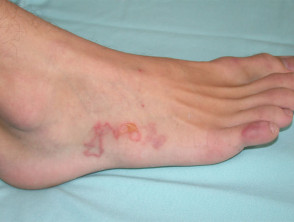
In addition, efforts are underway to develop a human hookworm vaccine through public–private partnerships. Thus, other control strategies aimed at improving water quality, sanitation and hygiene are needed. Although anthelmintic drugs are available and widely used, their efficacy varies and the drugs do not prevent reinfection. Accordingly, the host switches to an immune-tolerant state that enables hookworms to reside in the gut for many years. Humans mount an immune response to hookworms, but it is mostly unsuccessful at removing adult worms from the bowel. Almost 500 million people in developing tropical countries are infected, and simulation models estimate that hookworm infection is responsible for >4 million disability-adjusted life years lost annually. Adult worms feed on the blood of a host and can cause iron deficiency anaemia, especially in high-risk populations (children and women of childbearing age). are experiencing symptoms of infection after travelling or coming into contact with soil used by petsĪ veterinarian can offer advice on screening and treatment of a dog or cat.Hookworms are soil-transmitted nematode parasites that can reside for many years in the small intestine of their human hosts Necator americanus is the predominant infecting species.think they may be at risk for contracting hookworm.following a vet’s advice about dewormingįor additional information on cat and dog hookworm infections, visit the CAPC’s website.preventing dogs from wandering neighborhoods or scavenging.

Other public safety measures that people can take to reduce hookworm transmission include: To prevent parasitic infection, the CAPC recommend year-round broad-spectrum parasite control and also recommend promptly removing animal stool from litter boxes and yards. As with any preventive testing, the animals’ health and certain risk factors will guide how often testing is needed. The CAPC recommend at least four intestinal parasite tests in the first year and a minimum of two a year afterward. The animal strain can spread to humans in some cases.įor this reason, the Companion Animal Parasite Council (CAPC) recommend fecal testing in cats and dogs, with more frequent testing in the kitten and puppy age groups. Hookworms can be present in household pets, including dogs and cats. Share on Pinterest Taking pets to the vet regularly for testing and treatment can reduce the risk of catching and spreading hookworms. Infection can only happen when the eggs mature into larvae in soil. Hookworms cannot pass to another individual through personal contact. From here, thousands of eggs can enter the human feces. Mating also occurs in the small intestine. In some cases, the person may develop anemia as they lose blood to the hookworms. If a person digests mature hookworms, the worms attach to the small intestine and gain nutrients through human blood. From there, the person can cough them up and swallow them.


These systems carry the larvae to the lungs.
#What causes hookworms in humans skin#
Share on Pinterest Hookworms can enter the skin when a person comes into contact with contaminated soil.


 0 kommentar(er)
0 kommentar(er)
